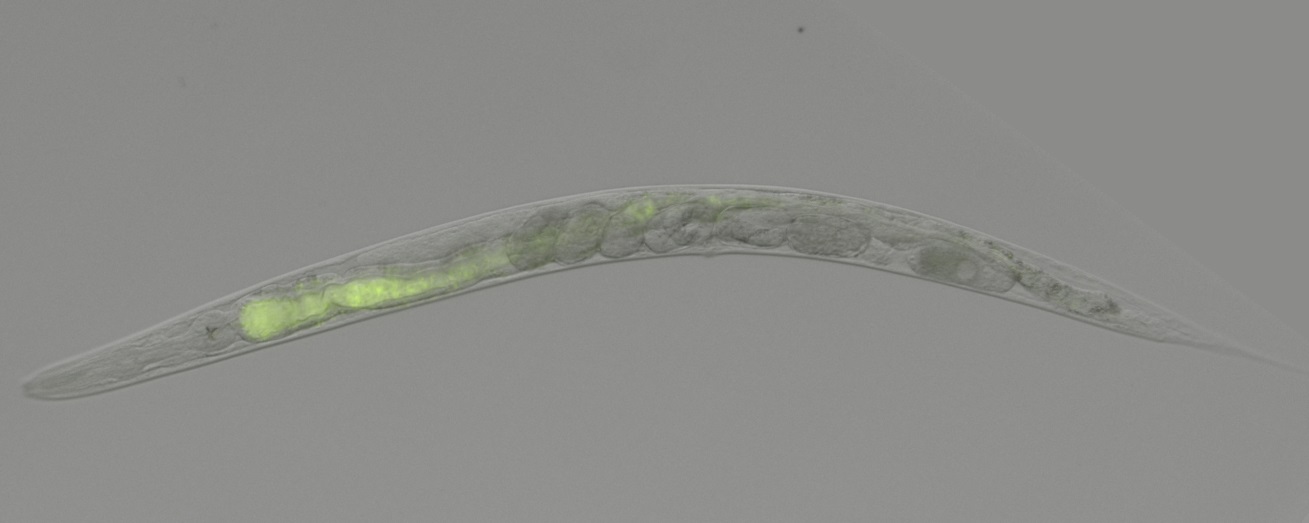Research Interests

Animals are exposed to a stunning variety of microorganisms; some are beneficial while others have the potential to cause disease. The innate immune system is an evolutionarily ancient method of defending against potentially pathogenic microbes. To engage an innate immune response, a host organism must recognize that some microbial pathogen is attempting to cause an infection. However, we currently have only a limited understanding of how this occurs. To explore the molecular mechanism of infection recognition, we searched for receptors in the nematode C. elegans, which is an established model for studying host/pathogen interactions. We identified a G-protein coupled receptor called FSHR-1 as an important component of the C. elegans innate immune response to a variety of bacterial pathogens. The receptor FSHR-1 defines a new signaling pathway that acts in the nematode intestine, the major site of infection by ingested pathogens. FSHR-1 regulates the transcription of pathogen-response genes that likely act to kill bacteria and fight infection. Additional molecular genetic characterization of the function of the FSHR-1 receptor and the microbial components that activate it will help us better understand how C. elegans and other animals recognize and respond to infection.